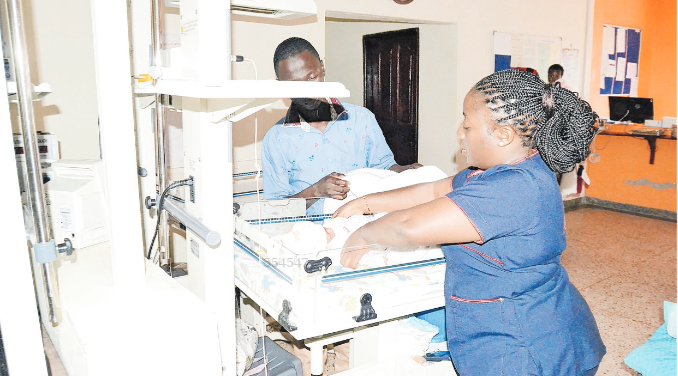Prime
Creativity after vocational school matters

Vocational graduates are advised to be creative other than looking for jobs. Photo by Godffrey Lugaaju
What you need to know:
- Starting personal businesses is not always easy for vocational graduates, Anjijuka Narasi Kambaho, the senior information and communication officer at Uganda Business and Technical Examinations Board (UBTEB), says.
- Some banks offer soft loans for those starting business.
Francis Nabeeta sought a loan to start up his business.
Why would a graduate from a vocational school go out to look for a job, yet, they can create their own if they are creative enough to explore available options, writes Esther Oluka.
After completing Senior Six in 2010, Gabriel Mugisha could not proceed to the university as his mother failed to raise the required tuition. Mugisha had hoped to enrol for a Bachelors in Public Administration and Management.
Mugisha’s mother advised that he enrols for a vocational course as a cheaper option. Vocational training offers students an opportunity to acquire hands-on skills and knowledge in a specific field or trade. It could be on auto repair, carpentry, construction, hairdressing, tailoring, wielding, among others.
Mugisha opted for a carpentry and joinery programme at one of the vocational institutions in Kampala.
“I was equipped with a number of skills in woodwork and learnt how to make all sort of furniture including beds, chairs and tables,” he says.
After completing his nine months training programme, Mugisha tried venturing into carpentry work in vain.
“The situation was tough in the beginning because I had no capital. I needed money to kick start my work and yet it was not there,” he says. The now 31-year-old says he then resorted to looking for any other kind of employment.
“With my academic papers in hand, I went from one office to another desperately searching for any kind of job opportunity. I did not mind if I was hired as a cleaner, driver or even receptionist. All I wanted was a job that would enable me work and save some money for starting up my own business,” he says. Today, Mugisha works as a driver in one of the companies in town since 2015.
The job is helping him save up some money for starting his own business in future.
Likewise, Sharon Nankya, 33, who studied a Diploma in Hairdressing and Beauty Therapy, did a number of previous jobs including working as a cleaner and house help in order to save up some money for opening up a saloon.
The problem
Starting personal businesses is not always easy for vocational graduates, Anjijuka Narasi Kambaho, the senior information and communication officer at Uganda Business and Technical Examinations Board (UBTEB), says.
“There are expenses involved including purchasing the necessary equipment, paying rent and the required licenses needed for operation. Sometimes people want to first get formal jobs in order to save and accumulate money for starting their own businesses later,” he says.
Meanwhile, George Tugume, the head teacher at Raymond Vocational Secondary School in Mubende District, says there are graduates who look for jobs first in order to attain experience in a particular field.
“For instance, a graduate with a Diploma in Fashion and Design may wish to first work in a similar field in order to learn how the business works,” Tugume says.
In addition, he says, other graduates first look for jobs as a way of networking and first building a client base.
Possible solutions
Edward Asiimwe, the principal at Uganda Rural Development and Training Institute in Kagadi Town, believes that policy makers, the government in particular, needs to support vocational trainings at all levels.
“Just like in other education sectors, increased funding and investment is also mandatory in vocational institutions,” he said.
In addition, Asiimwe believes that students need to be continuously given proper career guidance to enable them make informed academic choices while the masses need to continuously be sensitised about the essence of vocational training.
Starting up
Barter your skills. Josephine Naigaga, a graduate from YWCA Vocational Training Institute, Kampala says, “I used the baking skills I learnt during my catering course to teach friends and referrals how to bake cakes and snacks from my home at a cost of about Shs300, 000 a month. I was able to save and purchase a locally-made oven as well as rent space for my bakery and cake shop.”
Parental support. Parents can help get you financial help. Sheena Kawalya, 26, faced several failed attempts while job hunting. “On sharing this with my mother, she offered me Shs2,000,000 to start up a mobile money business from which I was able to start up a boutique downtown Kampala where I also tailor clothes.”
Seek a bank loan. Some banks offer soft loans for those starting business. Francis Nabeeta sought a loan to start up his business. “After my studies at Buganda Royal Institute of Business and Technical Training Education, I got a job as an office messenger. Although my salary was never adequate, I took up a salary loan to start up an events management business,” he says.
Explore NGO funds. “I ventured into farming after my studies at Kyera Agricultural College in Mbarara, so I took on training from Youth Alive. The organisation gave me seedlings to start up tree growing in my home village,” shares Raymond Alinda. Alinda encourages the youth to use small starting up tools to build a business.




